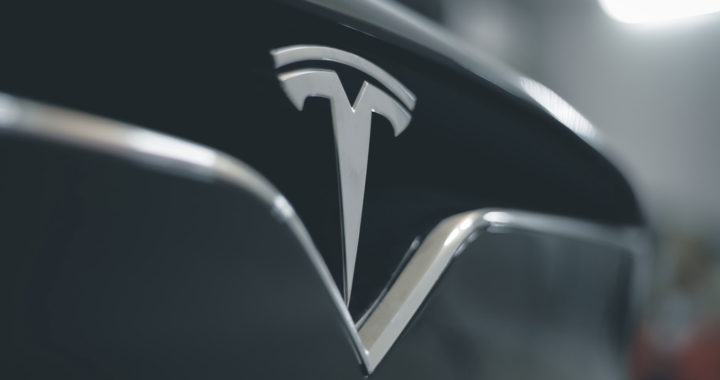Tesla has demonstrated coherence within its entire marketing mix. Consider its product strategy as an example. This specific strategy complements and reinforces other elements of its marketing strategy like its specific pricing strategy, distribution strategy, and promotion strategy. The company has also built its strengths and competitive advantage using the same product strategy that takes into consideration its value proposition of offering clean and sustainable energy solutions through its product offerings.
Key Principles and Elements in the Product Strategy of Tesla: Highlighting Its Status as a Tech and Clean Energy Company
Some might associate Tesla with its electric vehicles but the company has considered itself not a mere automaker but a well-rounded technology company and even a clean energy company. It strives to accelerate the global transition to sustainable energy. The stated mission and vision have been at the core of its business strategy and specific product strategy.
1. Sustainable Energy Products: Developing Capabilities and Relevant Products that Promote the Use of Clean Energy
Remember that Tesla is not just an automaker. It is a tech company focusing on clean energy solutions. The company does develop, manufacture, and market electric vehicles but it is also a leader in energy storage products with its innovative lithium-ion battery technology and a respectable player in the photovoltaic market with its solar energy systems.
The stated mission and vision of the company provide the guiding principles for developing its products or approaching product development. Consider its electric vehicles as an example. These vehicles are based on the specific battery-powered electric vehicle configuration. They do not run on fossil fuels and do not produce emissions.
Furthermore, its batteries are used in its vehicles and are also sold to residential and commercial customers. Its specific lithium-ion batteries differ from other large li-ion batteries from other manufacturers because they use a cylindrical cell design and are based on a pack design to improve their storage capacity, overall performance, and lifespan.
Its solar power systems also differ from other solar panels and systems from competitors. The panels are designed to withstand high winds, hail, snow, and ice to maximize sunlight capture. The entire system is about 20 percent more efficient. It can also be integrated with the Tesla Powerwall and Tesla Powerpack or Megapack lithium-ion batteries.
2. Research and Development: Leveraging Technological Capabilities to Introduce Innovative Features and Capabilities
Another important element of the product strategy of Tesla is its research and development pursuits aimed at developing and deploying technologies to differentiate its products and equip them with relevant features and capabilities. The innovative characteristics of these products have allowed the company to retain its pricing strategies.
Tesla vehicles are not typical battery-powered vehicles. They are equipped with hardware components and run on several software applications to power features. A custom-made chip based on the Nvidia Xavier platform runs the autopilot system while both the Nvidia Tegra platform and Qualcomm platform run the infotainment system.
Its batteries are also based on cutting-edge technologies. Remember that cylindrical cell design and pack design make them more efficient than other li-ion batteries. The company is also developing new battery technologies. These include solid-state li-ion batteries that use a solid electrolyte and graphene batteries that use graphene as the anode.
The Solar Roof is another interesting product from Tesla that was born from its research and development activities. It is a solar roofing system that is designed to look like traditional roofing materials. The system is more aesthetically pleasing than traditional solar panels. It is also more durable because each tile is made from tempered glass.
3. Creating a Halo Effect: Providing Positive Customer Experience through Complements and Excellent Service
Owning a Tesla product comes with perks and privileges. Trained technicians from the company install its solar power systems. The same technicians can also work together with architects and engineers of a particular residential or commercial construction project. The solar panels have a 25-year warranty and the inverter has a 10-year warranty.
Both the solar power systems and battery products can be monitored via the Tesla mobile app. This software application allows users to track energy production and energy consumption, set specific user preferences to optimize for energy independence, troubleshoot specific problems, and configure other settings or toggle specific features.
The same Tesla app can also be used to manage Tesla vehicles. It can lock or unlock the vehicle, start and stop charging, set climate control settings, and download software updates. The software application is an attempt at creating a product ecosystem through product complements to provide a seamless and positive customer experience.
It is also interesting to note that some aspects of the distribution strategy of the company overlap with its product strategy. Its physical stores and service centers provide after-sales support. Tesla has also maintained and expanded a network of Superchargers in key geographic markets to ensure its vehicle owners access to charging stations.
A Note on the Product Strategy of Tesla: Leveraging Tech to Promote Products that Provide Clean Energy Solutions
The principles and elements of the product strategy of Tesla are geared toward achieving its stated mission and vision of accelerating the global transition to sustainable energy. At the heart of its business is the development and deployment of technologies aimed at introducing practical clean energy products and relevant value-added services.
Nevertheless, true to its positioning, it is a clean energy company that leverages the use of tech. Tesla electric vehicles have remained unmatched in terms of quality. Its energy storage products have made it one of the biggest suppliers of lithium-ion batteries in the world while its solar power systems have made it a dominant player in the photovoltaic market.





